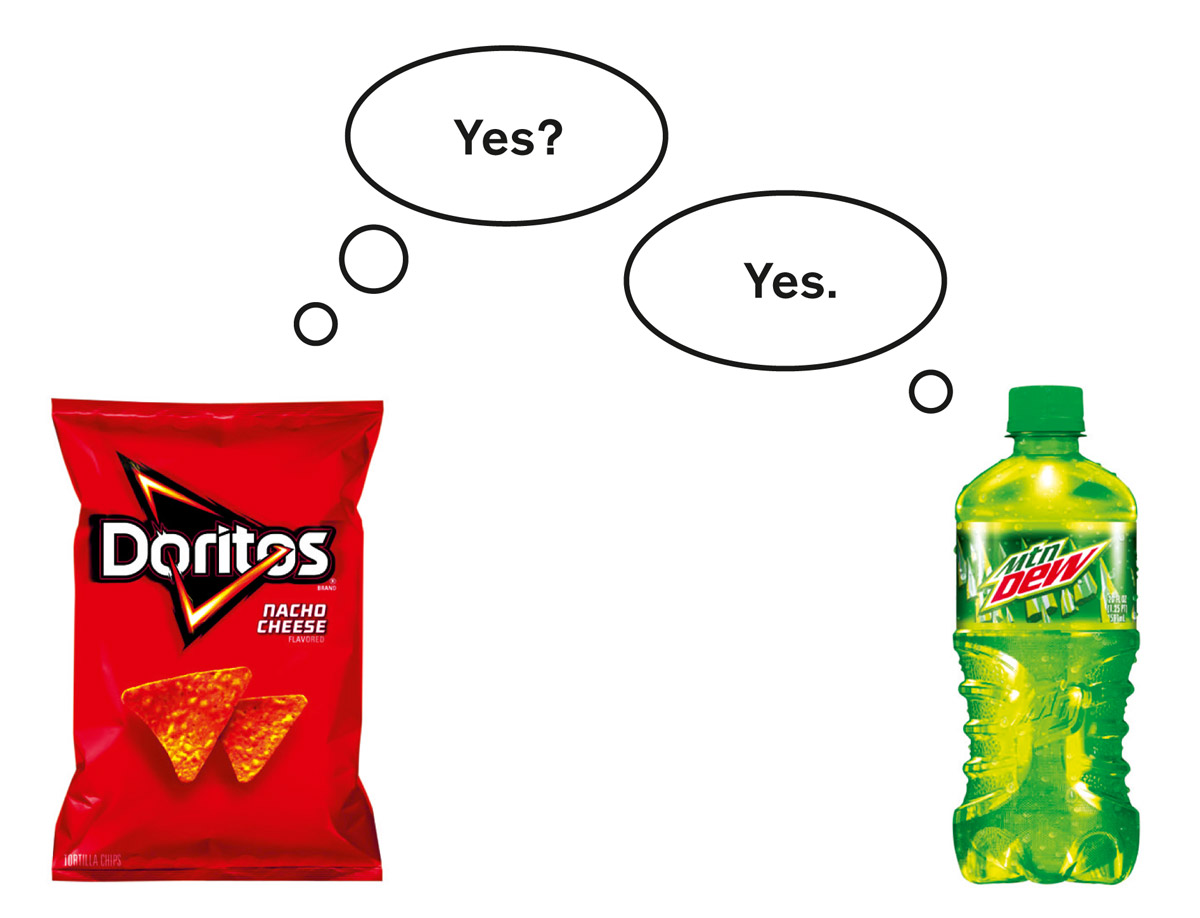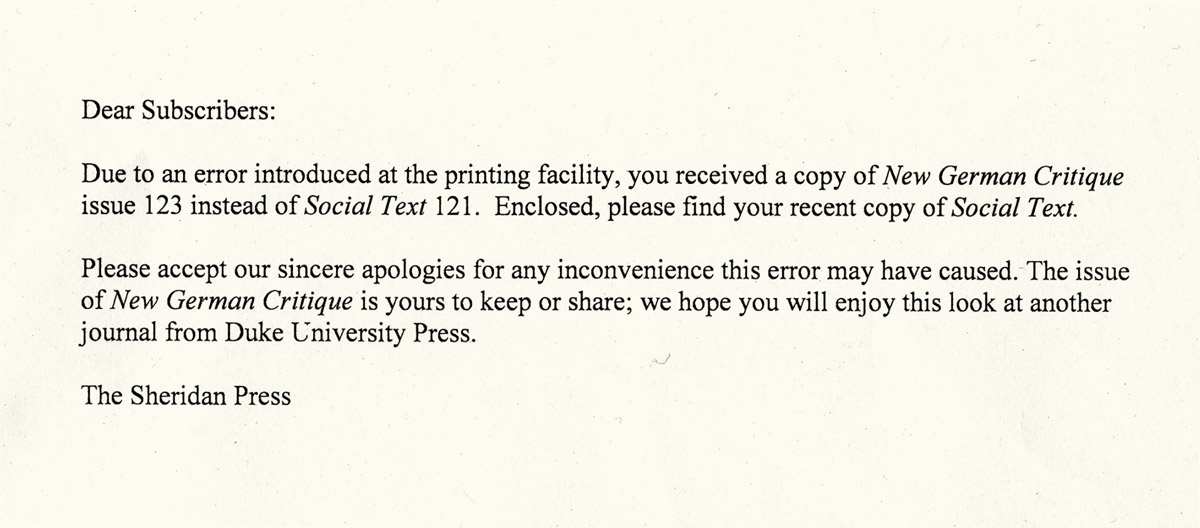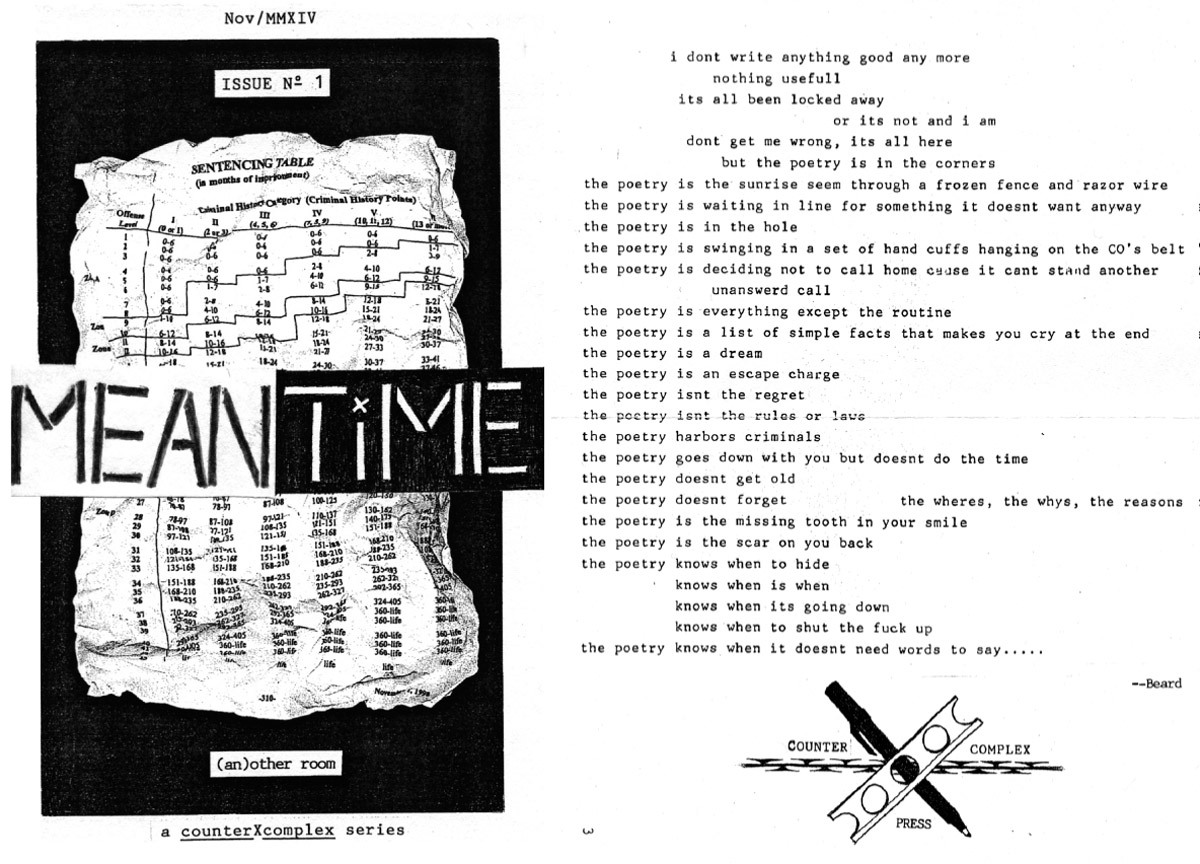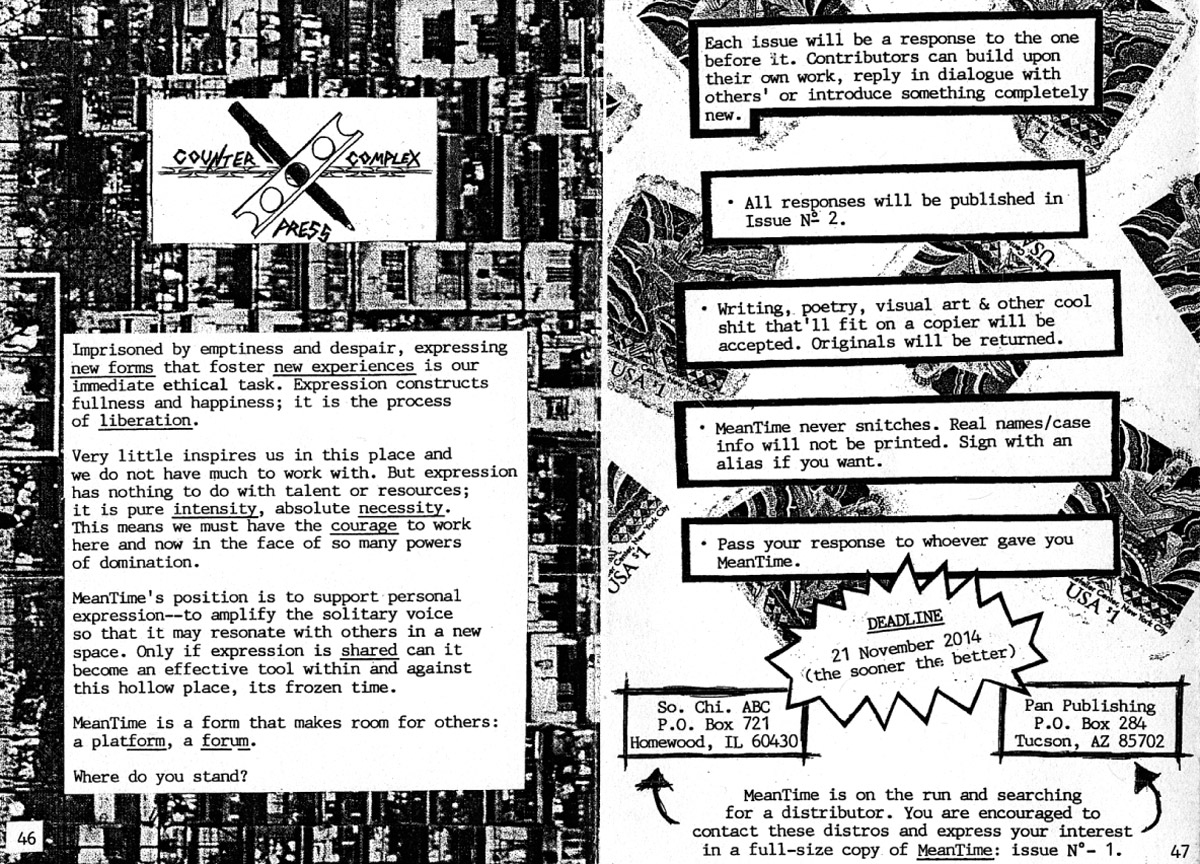Kiosk / Fall 2014
In the nooks and crannies
Cabinet

How many animals will there be left to count in a hundred years’ time? (See this issue’s “Inventory” column.) According to the World Wildlife Fund’s 2014 “Living Planet Report,” the earth has lost half of its wildlife in the last forty years. More and more, even very young children know that this is something they need to worry about, as witnessed by the following conversation between a friend of one of the editors and his four-year-old son:
“Daddy, will the animals be alive when I grow up?”
“Which animals?”
“All of them.”
“What made you ask that question?”
“My heart.”
• • •
The United States, of course, has done more than its fair share to bring about the demise of our fellow animals, but the American government apparently also has a long history of making life miserable for inanimate objects, as we recently discovered when researching US v. 1,950 Boxes of Macaroni, a court case cited in George Pendle’s “Ingestion” column in this issue. Here is a sampler of similar cases that we came across in the legal record; if taken at face value, they suggest a continuing pattern of what might be called Object-Oriented Antipathy:
US v One Bag of Crushed Wheat (District Court; Southern District, New York, 1908)
US v Two Barrels of Desiccated Eggs (District Court; Minnesota, Fourth Division, 1911)
US v Three Packages of Distilled Spirits (District Court; Eastern District, Pennsylvania, 1907)
US v Four Lorgnette Holders (District Court; New Jersey, 1904)
US v Five Boxes of Asafoetida (District Court; Eastern District, Pennsylvania, 1910)
US v Six Fermenting Tubs (District Court; Wisconsin, 1868)
US v Seven Packages of Tea (District Court; Eastern District, New York, 1903)
US v Eight Cases of Lamps (District Court; Southern District, New York, 1839)
US v Nine Barrels of Olives (District Court; Eastern District, Pennsylvania, 1910)
US v Ten Cases, more or less, Bred Spred (Circuit Court of Appeals; 8th Circuit Court, 1931)
US v Eleven Vehicles (District Court; Eastern District, Pennsylvania, 1993)
US v Twelve 200-ft. Reels of Film (US Supreme Court, 1973)
• • •

We selected these particular cases so that next holiday season, readers can amuse their friends with an alternate set of lyrics for the classic carol “The Twelve Days of Christmas.” Our favorite lawsuit among the twelve is the one concerning Bred Spred, an alleged jam whose excessive sugar content earned it the wrath of the Food and Drug Administration. This regulatory concern with the health of American citizens seems rather quaint in the face of current FDA-approved delicacies such as Dewitos, a new soda currently being test-marketed by PepsiCo. that is the unfortunate progeny of two of its flagship products—Mountain Dew and Doritos.
• • •

Speaking of two-for-ones, we were pleasantly surprised when we recently received issue 123 of New German Critique, a journal we admire but with which we do not have a subscription exchange. This was soon followed by a copy of Social Text issue 121, along with the charmingly apologetic note reproduced here. Having an issue of New German Critique in the office reminded us of an anecdote told by Anson Rabinbach, one of its editors, at a conference a few years ago. In the 1990s, the journal—founded in the United States in the early 1970s—decided to see if the recently opened Stasi archives contained anything on its work, which had been instrumental in introducing to an American audience the writings of unorthodox figures within German Marxism, such as Walter Benjamin and Ernst Bloch. In fact, the Stasi files on New German Critique turned out to be voluminous, containing, among other things, numerous retranslations back into German of the journal’s English translations of works by these thinkers.
• • •

Another periodical unexpectedly arrived at the office recently, the excellent issue 1 of MeanTime, published at a prison in Mississippi and sent our way by Liam, one of its makers. We are taking the liberty of reproducing a few pages of the magazine, which, in its own words, “dwells properly in the improper.” If you’d like to get a copy of MeanTime, contact one of their two distributors listed below.

Spotted an error? Email us at corrections at cabinetmagazine dot org.
If you’ve enjoyed the free articles that we offer on our site, please consider subscribing to our nonprofit magazine. You get twelve online issues and unlimited access to all our archives.